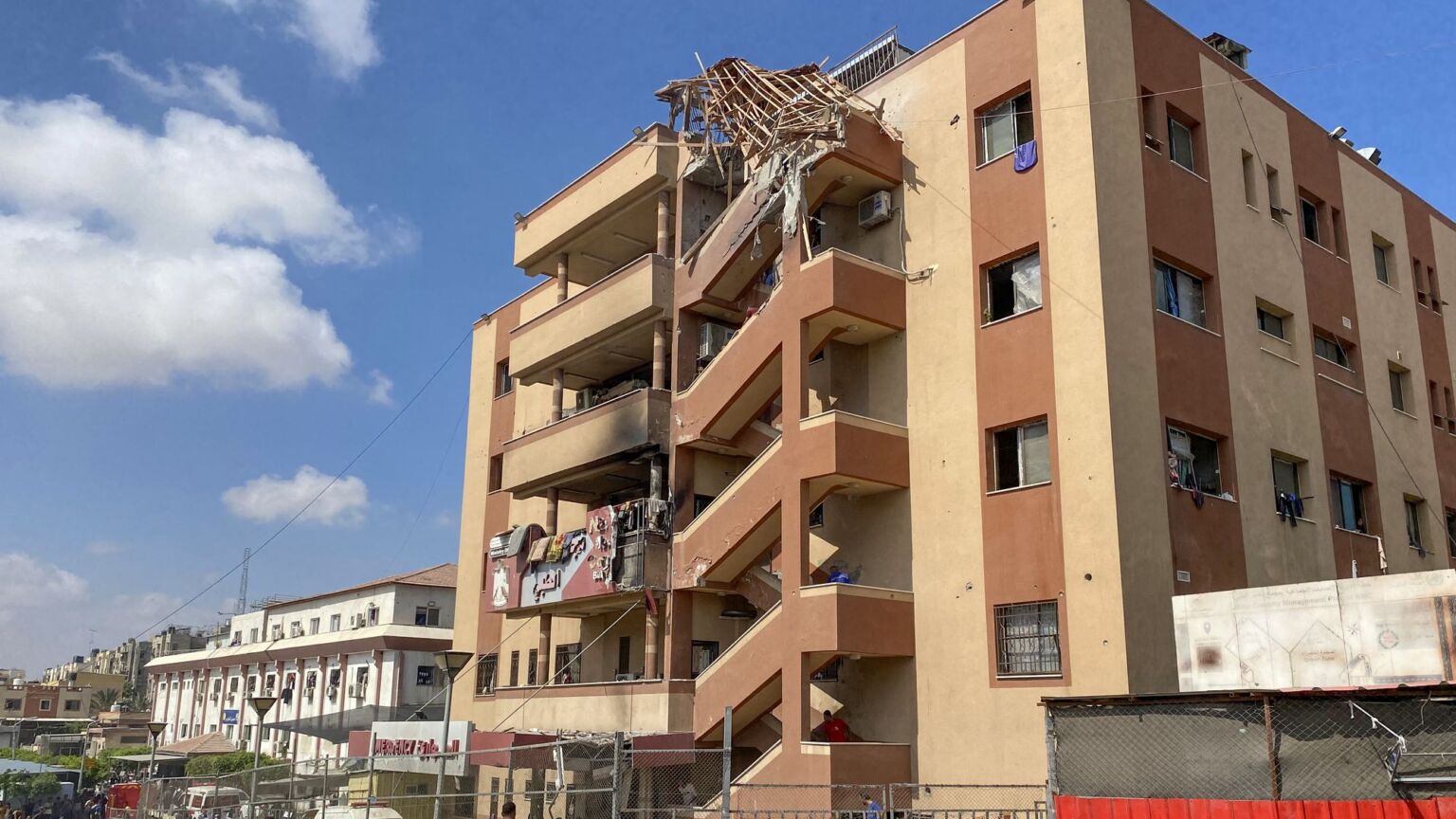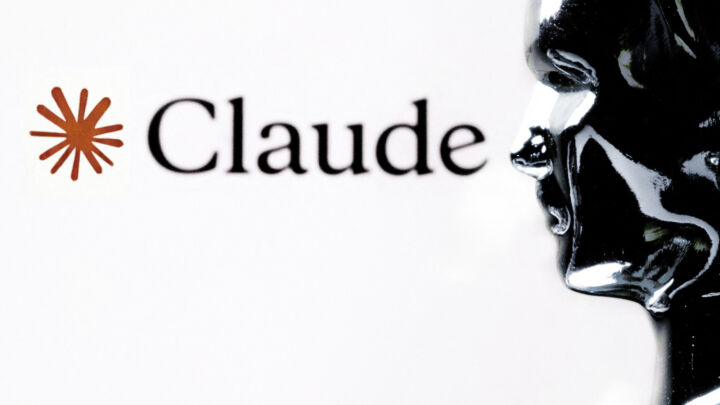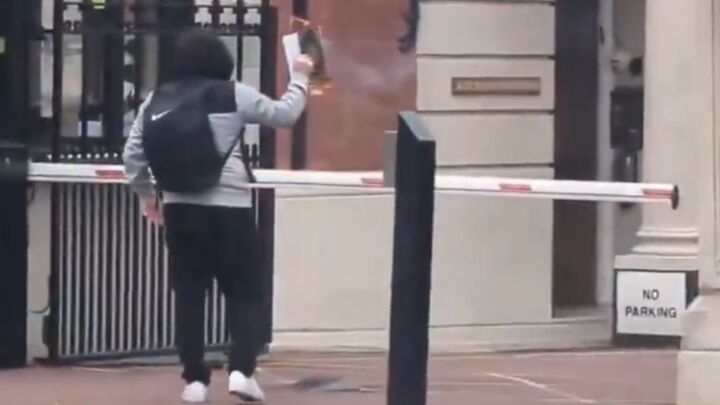When hospitals become battlefields
The Nasser Hospital strike in Gaza was a tragedy, not a ‘war crime’.

Want unlimited, ad-free access? Become a spiked supporter.
The IDF’s strike on the Nasser Hospital in Khan Younis in Gaza on Monday, reportedly killing 20 Palestinians, including five journalists, has put Israel back at the centre of international attention. The reaction has followed a predictable pattern: a shocking video, immediate accusations of war crimes levelled against Israel, and near-ubiquitous international condemnation. But to understand what happened, and why the situation around the Nasser Hospital is so fraught, a longer and more sceptical view is required.
The first point that needs making is that the Nasser Hospital has not been a neutral space during the war in Gaza. In fact, it has repeatedly been abused by Palestinian militant groups. In February 2024, the IDF arrested more than 100 militants inside the hospital, some of whom were directly involved in the 7 October 2023 massacre. Weeks earlier, freed Israeli hostage Sharon Aloni Cunio told CNN that hostages had been held in the hospital. In April, the hospital’s own director of nursing, Mohammed Saqer, revealed in a since-deleted social-media post that Palestinian Islamic Jihad had threatened him after he reopened wards to the sick and wounded.
It is common knowledge that Hamas uses hospitals and schools as military bases, which is why Israel has had no option but to strike them at times. Mohammed Sinwar – who became the de facto leader of Hamas after the death of his brother, Yahya – was killed by the IDF at Gaza’s European Hospital in May. Nor was Monday the first time Israel has targeted the Nasser Hospital. In May, a strike on the complex killed notorious 7 October live-streamer Hassan Aslih, along with Ahmad al-Qidra, a senior Hamas militant.
The identities of some of those killed on Monday further complicates matters. Indeed, some of the journalists killed in the strike appear to have been members of, or have close ties to, Hamas. Mohammed Salama, a journalist for Al Jazeera, videoed and participated in the 7 October invasion of Israel that started the war. Mariam Abu Daqqa, who freelanced for the Associated Press, allegedly used her press credentials to protect Hamas fighters. Another, Ahmed Abu Aziz, openly celebrated the 7 October massacre. These connections do not necessarily justify their deaths, or even suggest they were knowingly targeted. But this does illustrate, once again, the way Hamas deliberately blurs the line between civilian and combatant, between journalist and operative.
Israel’s Channel 12 has reported that the first strike targeted a man who had been monitoring IDF forces with a camera on the hospital’s fourth floor, a justification repeated by the IDF. Israel’s military also claims to have killed six terrorists in the strike from both Hamas and Palestinian Islamic Jihad. None of this, however, absolves the IDF for what happened next.
Video footage showing a second strike that killed emergency workers responding to the initial impact is deeply troubling. Normally, precision strikes are carried out with drones or guided munitions, not by tank shells. Whether this was a legitimate strike, an operational error, a breakdown in communication or something more sinister will need to be determined through a full investigation. There remain significant questions about proportionality and anticipated collateral damage in this strike.
Israeli prime minister Benjamin Netanyahu and senior IDF commanders have already suggested that something went wrong. The IDF has promised to ‘examine several gaps’ in the strike, including who authorised it. Netanyahu was far more emphatic. He said Israel ‘deeply regrets the tragic mishap’ that led to the strike, and promised a ‘thorough investigation’. The IDF owes Israelis, Palestinians and the international community a clear and transparent explanation.
What happened at the Nasser Hospital encapsulates the tragic reality of the Gaza war. It also highlights the sadistic logic used by Hamas to protract the war at all costs. It has embedded fighters, weapons and command centres in hospitals, schools and mosques. In doing so, it gains a cruel advantage: if Israel refrains from striking, Hamas benefits militarily. But if Israel does strike, Hamas benefits politically, as images of civilian casualties dominate headlines worldwide. Israel, meanwhile, is forced to make decisions in an environment where the normal distinctions between civilian and military sites can be impossible to discern. In such circumstances, mistakes are inevitable. Yet each one becomes a source of global outrage, with Israel pinned as the callous perpetrator of an alleged war crime, long before the facts are established.
The Nasser Hospital strike is, in many ways, a distillation of the insoluble moral and strategic problems of the war in Gaza. It shows how boundaries between civilian and combatant are deliberately erased, how international law is abused for the benefit of terrorists, and how Israel is condemned for fighting an enemy that hides behind the sick and wounded.
The world should demand answers about Monday’s strike – but it should also demand accountability from those who have deliberately turned hospitals into battlefields. Of course, that would mean admitting that this war is far more complex than the standard narrative allows.
Andrew Fox is a former British Army officer and an associate fellow at the Henry Jackson Society, specialising in defence and the Middle East.
You’ve hit your monthly free article limit.
Support spiked and get unlimited access.
Support spiked and get unlimited access
spiked is funded by readers like you. Only 0.1% of regular readers currently support us. If just 1% did, we could grow our team and step up the fight for free speech and democracy.
Become a spiked supporter and enjoy unlimited, ad-free access, bonus content and exclusive events – while helping to keep independent journalism alive.
Monthly support makes the biggest difference. Thank you.









Comments
Want to join the conversation?
Only spiked supporters and patrons, who donate regularly to us, can comment on our articles.